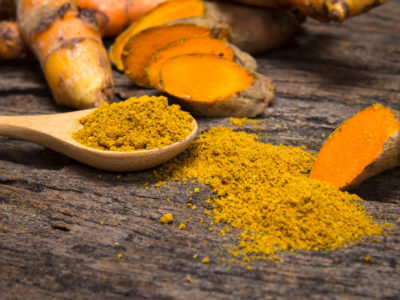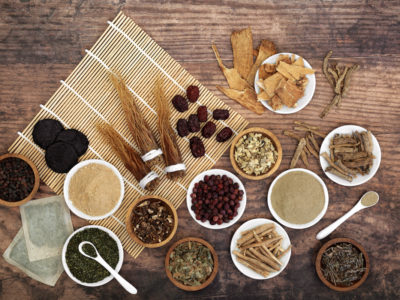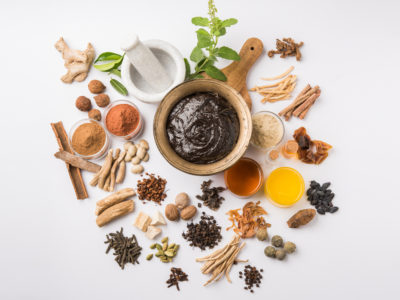Herbs for Memory You Should Get Your Hands On
Everything from your gut health, to stress, to your sleep quality can affect your cognition and brain health. Make sure you are eating a healthy, whole foods diet and prioritizing your self-care first and foremost. In addition to a healthy lifestyle, these herbs for memory and concentration can help give you the extra boost you need to function at your peak mental state.
1. Green Tea
One of the best herbs for memory and focus is green tea. To be specific, it may improve working memory, which is the “memory in action” while you’re doing something.
In a single-blind, placebo-controlled trial involving older healthy women, those who took green tea extract enhanced their reading span.
This study may imply drinking green tea is an excellent option for women between 50 and 63 years old who are prone to age-related memory loss.
Today, your green tea choices are wide, but if you want to maximize your intake, consider using an alkalizing greens product. This has green tea on top of potent super greens and other blends to maintain a healthier body and mind.
Related
The Battle Of The Greens: Moringa vs. Matcha
Some super greens are worth drinking, but when it comes to moringa vs. matcha, which is better for overall health and wellness? Find the answer below!
2. Gotu Kola
Gotu kola is a gold standard in traditional Chinese medicine because of its significant impact on brainpower. It is one of the best herbs for memory loss due to its proactive properties against toxins.
This makes the herb a promising supplement for those with Alzheimer’s disease, a type of cognitive impairment associated with memory loss.Together with folic acid, it can significantly improve cognitive function. When it comes to enhancing memory, however, gotu kola may be enough, according to 2016 animal research. Findings from this research show that gotu kola can also help the brain by staving off oxidative stress.
3. Ashwagandha
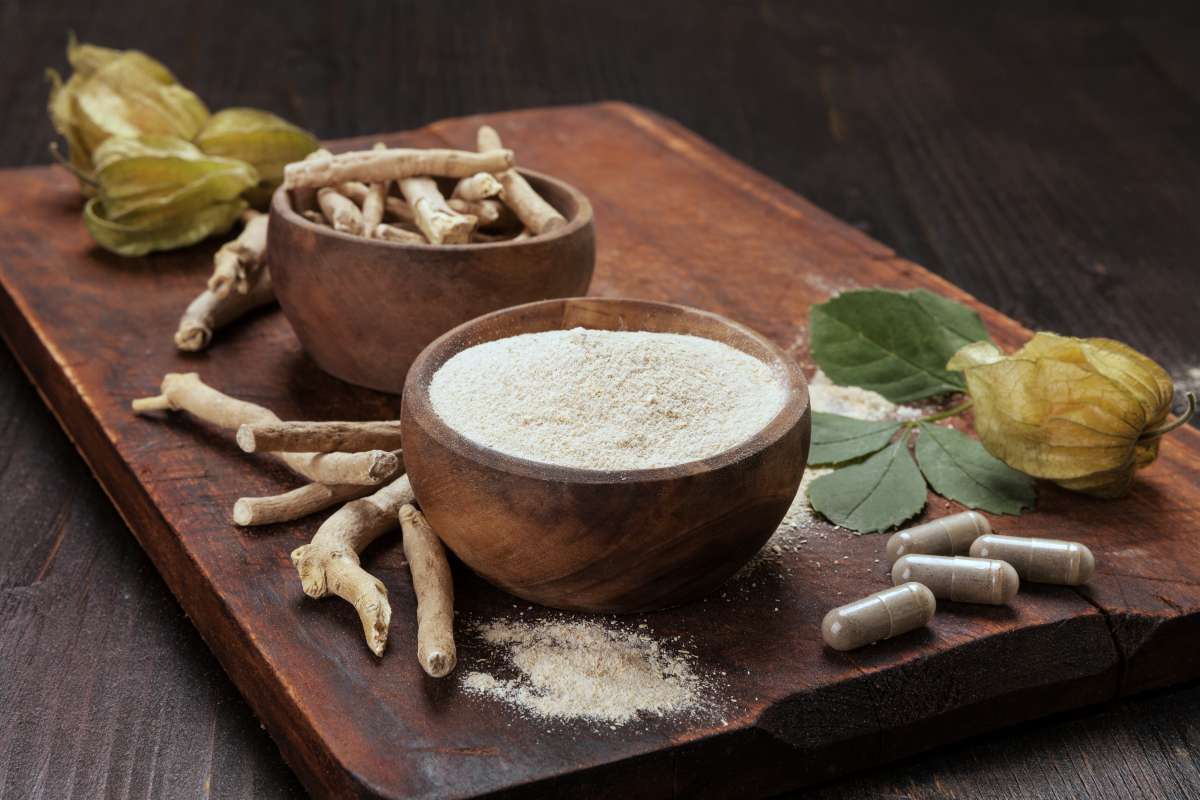
Ashwagandha is a popular Ayurvedic part of herbal medicine that has a long list of potential benefits, including boosting the ability of the brain to remember.
The plant can prevent the buildup of amyloid plaques in the brain, which is a hallmark characteristic of Alzheimer’s disease. It does this by increasing a certain type of protein found in the liver.
It is also a well-known adaptogen, which means it helps the body cope with stress. Stress can affect the way the brain stores short-term memories and converts them into long-term ones.
Depending on the level of stress, it may also impact the way you remember long-term memories. In turn, it leads to false memories.
Ashwagandha is also a common natural treatment for hypothyroidism, which is an under-active thyroid condition. This health problem often includes brain fog.
4. Rhodiola Rosea
This arctic root has the potential to boost your brainpower by as much as 33%. The secret lies in a bioactive compound known as the ferulic acid eicosyl ester (FAE-20).
In an experiment conducted with flies, the scientists were able to illustrate how FAE-20 helped promote memory performance. One of the possible explanations is the compound’s ability to prevent the accumulation of proteins in the synapses.
This plant may also boost energy performance, so you can exercise better and longer. Exercise, meanwhile, can also increase your memory, especially age-related memory loss.
If you have diabetes, ask your doctor if you can take this plant. It can help regulate blood sugar levels, which can also affect your memory.
Related
12 Caffeine Alternatives for a Natural Energy Boost
Increase your energy levels throughout the day with these caffeine alternatives. As an added bonus to drinking less caffeine, these substitutes have plenty of added health benefits that might make you think twice next time you reach for another cup of Joe!
5. Gingko Biloba
Another powerful herb for memory and brain function is ginkgo biloba. It may support the brain’s performance of stroke survivors.
In a recent study from 2018 in Stroke & Vascular Neurology, stroke patients who received both aspirin and a ginkgo biloba extract had significantly improved their memory, executive function, and other cognitive skills as compared to the ones who took aspirin alone.
A person who had a stroke can struggle with memory loss and poor cognitive ability. The condition also increases their risk of dementia.
Ginkgo biloba may then reduce these problems, delay the progression of the impairment, and restore some of their cognitive abilities.
6. Tulsi
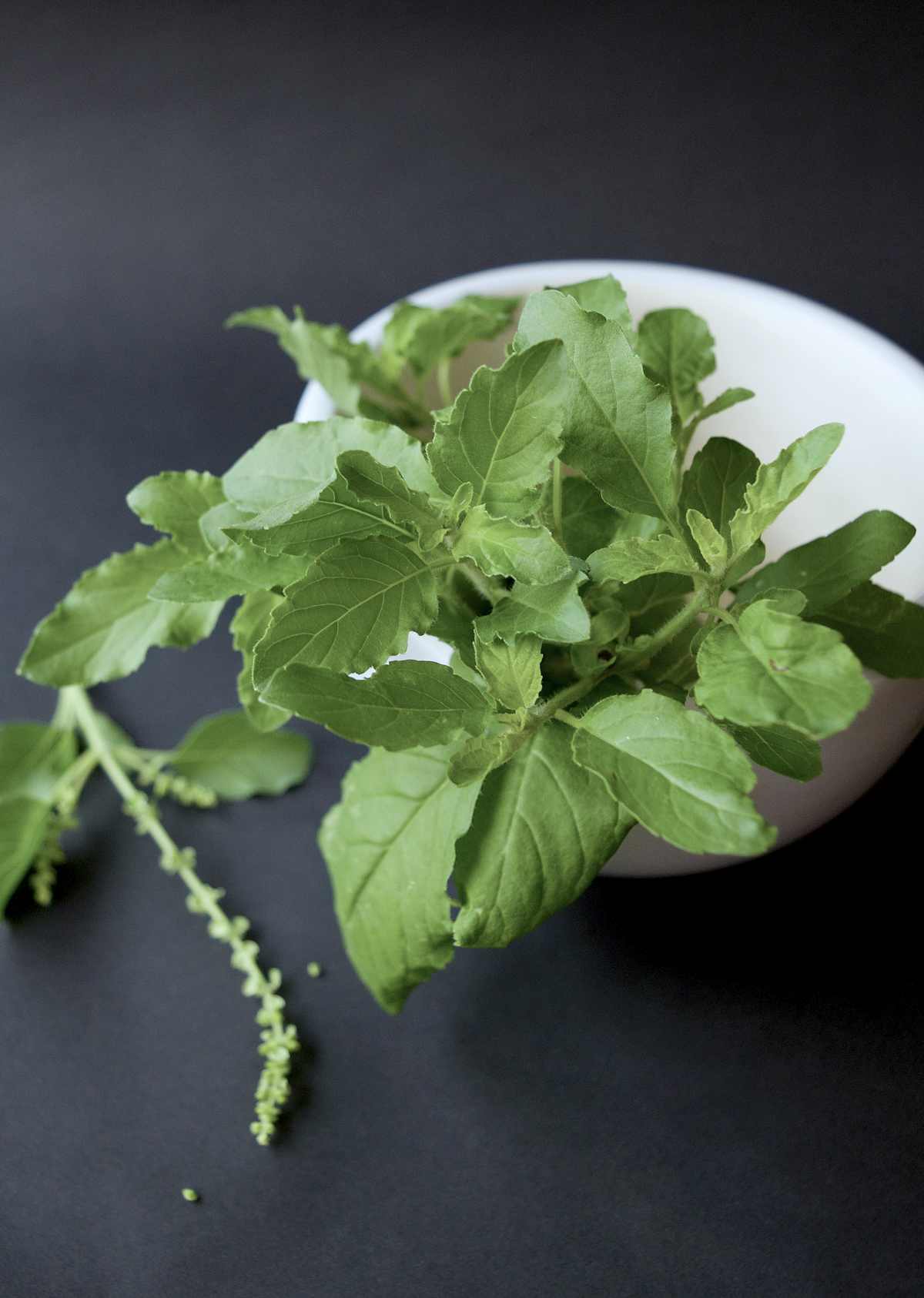
Tulsi is good for memory because of its ability to reduce anxiety. Being anxious activates the body’s stress response, producing a hormone called cortisol.
Cortisol can hamper the way the brain works, especially in forming and storing short-term memories. It can divert glucose, which is the source of energy, from the hippocampus to the other parts of the body.
The hippocampus is the part of the brain responsible for memory. It can also regulate cortisol, but when the hormone level is high, the hippocampus also doesn’t function properly.
7. Ginseng
Fatigue doesn’t only make your body ache; it may also force you to struggle with remembering. You can raise your energy levels and learn to combat it with ginseng.
A 2013 study showed the extract may be beneficial in reducing the formation of amyloid plaques in the brain. In the process, it acts as protection for the brain from cognitive impairment.
Panax ginseng is the most studied type during human clinical trials and a 2008 study has shown it to be effective in improving cognition among Alzheimer’s patients.
8. Rosemary
Certain smells can bring back memories, and this occurs because the brain is so good at associating information to recreate the scene where the smell was experienced.
It turns out, though, that smell may also improve the electrical activity of the brain to help enhance the memory. Rosemary is one such herb seen to do this.
In 2017 research involving the inhalation of rosemary, students who smelled it were better able to memorize numbers and images than the control group.
An easy way to get these effects from breathing in rosemary is to diffuse it as an essential oil.
Rosemary may also help reduce the effects of fatigue and anxiety. It tends to work with the monoaminergic system of the brain.
It refers to the group of neurotransmitters called serotonin and dopamine. Serotonin regulates mood, as well as feelings of happiness and pleasure, while dopamine influences sleep, mood, learning, and concentration.
9. Thyme
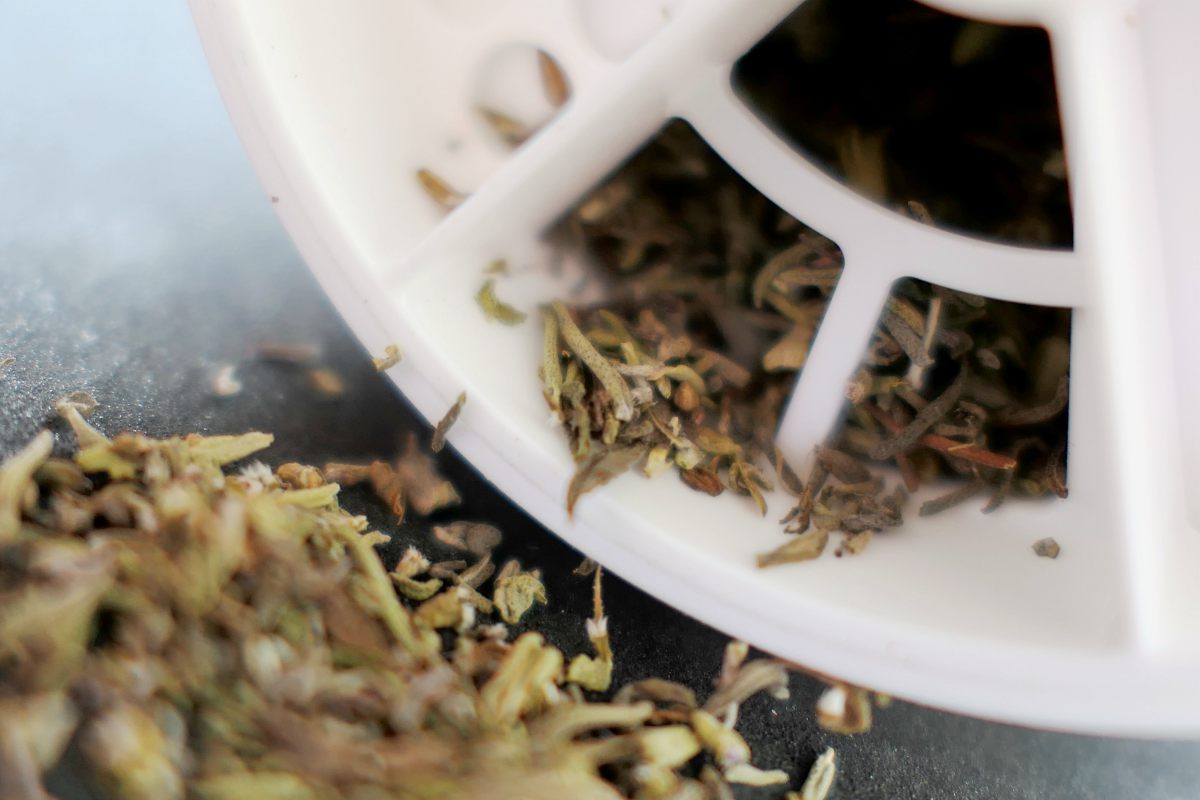
Another herb for memory enhancement is thyme. This Mediterranean herb can inhibit an enzyme called COX-2, which promotes chronic inflammation through the active chemical carvacrol.
Chronic inflammation is now a biomarker for neurodegenerative diseases and age-related memory loss, including Alzheimer’s disease.
You can use thyme in many ways, such as oil for aromatherapy or adding it in your food. For better flavor and brain health, combine it with rosemary.
10. Turmeric
Turmeric is an herb that’s been used in Ayurvedic medicine for years. The component that makes it so good for memory is a compound called curcumin. Curcumin has antioxidant and anti-inflammatory properties that are beneficial to overall wellness of the brain.
A 2008 study has shown that turmeric can help improve cognition function for people with Alzheimer’s. This is because the spice can clear the brain of beta-amyloid. Turmeric can also slow down cognitive decline by acting as an inhibitor to the breakdown of neurons.
Related
Turmeric: The Super-Root Could Save You Money (And A Trip To The Pharmacy)
Get to know the health benefits of turmeric and the various ways you can take it for your well-being. And learn a little bit more about the active ingredient in turmeric and the benefits of curcumin to the body.
11. Brahmi
Brahmi (aka Bacopa monnieri) is one of the best herbs for mental clarity. It helps the left and right sides of the brain work better together. Its specific brain health benefits include improving memory and focus while reducing stress and anxiety as well as helping with insomnia. It can also prevent mild cognitive impairment which can lead to development of the more severe Alzheimer’s disease later on.
The memory and overall cognition boosting effects of brahmi come from its concentration of triterpenoid saponins which have properties that protect the brain cells and enhance cognitive function.
12. Sage
Sage, or salvia, has been known to improve memory, mood, and attention in adults of all ages. A study from 2011 has shown that sage essential oil can lead to improvement in tasks that depend on memory and attention. It also decreased fatigue and made the participants more alert over a 4 hour period.
Sage also helps the brain by acting as an inhibitor to acetylcholinesterase (AChE). This is an enzyme that breaks down acetylcholine, which is a neurotransmitter that plays a vital role in brain function, including memory, attention, and motivation. AChE inhibitors help increase acetylcholine levels in the brain which highly improves cognition.
The Bottom Line
While all of these herbs are generally considered safe, you should always talk to your healthcare provider about potential side effects and interactions with medication.
These herbs for memory and concentration are your dietary allies when you need to help protect your brain and keep it sharp as you grow older. Make it a habit to add them to your daily routine by cooking, smelling, or consuming supplements with their extracts.
You May Also Like…
Editor’s Note: This post was originally published on July 8, 2019, and has been updated for quality and relevancy on June 30, 2021.



